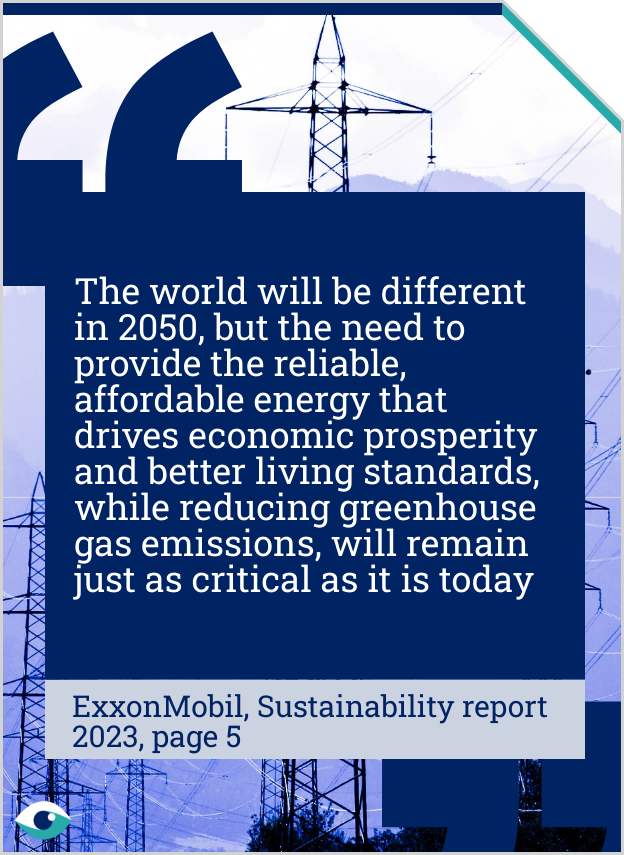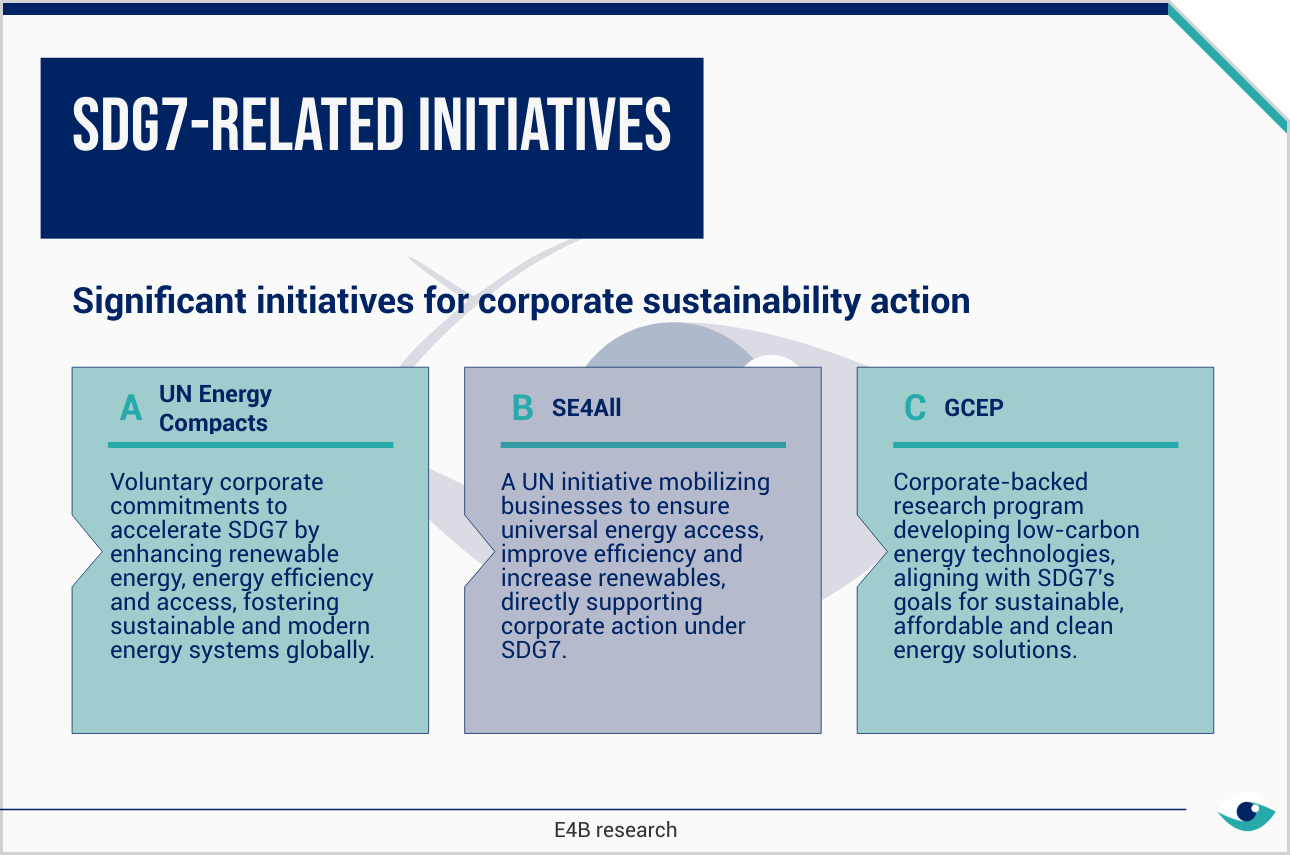The UN predicts a 21% shortfall in universal clean energy access by 2030, potentially leaving 1.8 billion without clean cooking options. Energy access introduces uncertainty that may impact energy entities' financial prospects. Despite over USD 1 trillion in commitments towards clean energy access, trillions more are urgently needed to sustain SDG7. Given the material significance of universal clean energy access, impacting two-thirds of the SDGs, energy entities can tackle this challenge by forming international partnerships to disseminate technology in developing countries, aligning with UN Energy Compacts and initiatives like Sustainable Energy for All.

No company is an island: uniting for sustainable energy
Energy companies must unite for SDG7, disclosing risks and actions to ensure affordable, clean energy for all by 2030
UN Sustainable Development Goals
Energy (all industries)
AT A GLANCE
UN forecasts a 21% shortfall in clean energy access by 2030—a significant challenge for energy firms meeting SDG7 goals.
International partnerships like UN Energy Compacts and SEforALL are crucial, with USD 1 trillion committed to projects and 129 million people gaining access to electricity.
Further collaboration can bridge funding gaps, ensuring universal energy access.

Partnerships crucial for SDG7
Forming international partnerships is essential for promoting affordable energy and achieving SDG7. Initiatives like Sustainable Energy for All (SEforALL) enable access to clean energy technologies and foster renewable energy research. For example, the Global Climate and Energy Program (GCEP), launched in 2002 through academia-industry collaboration, nurtured research into eco-friendly and affordable energy sources. Enel's partnership with SEforALL and commitments through the Energy Compacts show how corporate engagement accelerates access to clean energy technologies.
Evidence for collaboration
Progress towards SDG7 is evident in the more than USD 1 trillion in public commitments, as well as enhanced electricity access for 129 million people globally. Since 2021, 193 Energy Compact submissions have been made in support of energy access for 2 billion individuals by 2030. However, a significant gap remains regarding project origination and implementation.

Importance of corporate action
Investments in emerging economies show how partnerships address energy poverty in the Global South. TotalEnergies has deployed 6 GW of renewable capacity in India and aims to provide energy access to 40 million people by 2030 in pursuit of SDG7. There are limits corporate sustainability, with government subsidies likely to play an important role in delivering affordable energy to consumers in developing nations. Nevertheless, ignoring or failing to disclose actions related to SDG7 can expose energy entities to risks affecting profitability, operational efficiency and long-term sustainability.
Partnerships are key
Target 7a of SDG 7 promotes international cooperation to facilitate access to clean energy technology which includes cleaner fossil-fuel technologies and renewables. By developing realistic plans linked to Energy Compacts, energy sector entities can accelerate action towards SDG7 and achieve greater impact compared to existing pathways. Addressing affordable energy demands careful consideration, objective evaluation and an awareness of global initiatives.
FURTHER READING
- Energy Compacts Annual Progress Report 2023 (UN)
- Energy Compacts (Sustainable Energy for All)
- The Ten Principles (UN)
